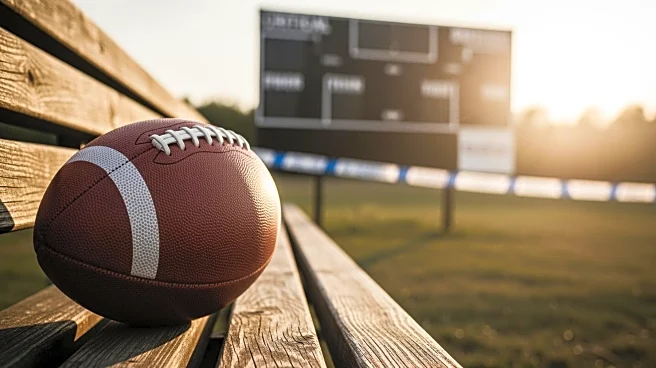What's Happening?
Former NFL quarterback Colin Kaepernick has demonstrated his commitment to social justice by funding an independent autopsy for Demartravion 'Trey' Reed, a Delta State University student who was found dead on campus. Reed's body was discovered hanging from a tree near pickleball courts, and the Bolivar County Deputy Coroner's Office ruled out foul play after an initial examination. The Mississippi State Medical Examiner's Office later determined that Reed died by suicide. In response to the tragedy, Kaepernick has stepped in to cover the costs of an independent autopsy through his 'Know Your Rights Camp Autopsy Initiative.' This gesture has been praised by civil rights attorney Ben Crump, who emphasized the importance of uncovering the truth behind Reed's death.
Why It's Important?
Kaepernick's involvement highlights the ongoing issues of racial and social justice in the United States. By funding the independent autopsy, he is supporting the Reed family's quest for clarity and justice, which resonates with communities that have historically faced systemic injustices. This action underscores Kaepernick's continued influence beyond his athletic career, as he uses his platform to advocate for marginalized groups. The initiative not only provides financial relief to the grieving family but also raises awareness about the importance of transparency in cases of unexplained deaths, potentially influencing public policy and community support systems.
What's Next?
The independent autopsy funded by Kaepernick is expected to provide further insights into the circumstances surrounding Reed's death. Depending on the findings, there may be calls for additional investigations or policy changes at Delta State University and beyond. Civil rights groups and community leaders may use the results to advocate for improved mental health resources and support systems for students. Kaepernick's initiative could inspire other athletes and public figures to engage in similar acts of advocacy, potentially leading to broader societal changes.
Beyond the Headlines
Kaepernick's gesture reflects a broader cultural shift where athletes are increasingly seen as advocates for social change. His actions may encourage other sports figures to leverage their influence for community support and justice initiatives. This development also raises ethical questions about the role of public figures in private matters and the impact of celebrity involvement in social justice causes. Long-term, Kaepernick's initiative could contribute to a reevaluation of how communities address mental health and support grieving families.









